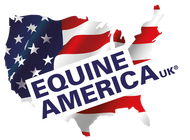Cushings - Who, What & How?

What is Cushings and what are the symptoms?
- Increased coat length which is often curly and failure to shed coat in summer
- Weight loss
- Abnormal fat deposits particularly above the eyes, the crest of the neck and above the tail head
- Increased drinking and urination
- Fatigue and poor performance
- Excessive sweating
- Recurring Laminitis
- Insulin resistance
- Susceptibility to infections and internal parasites.
How to manage Cushings?
Unfortunately, there is no cure but there is an effective treatment available in the form of the pharmaceutical drug Pergolide (Prascend) however not all owners will elect to treat the disease with medication. It will often depend on which signs a particular animal has and their severity. It may be possible to simply manage some of the clinical signs with management changes, including the main diet, exercise (if appropriate) and targeted nutritional support. Horses & ponies with excessive hair growth will benefit from regular clipping and should be more carefully monitored for worms and may need more aggressive worm control measures under veterinary advice. Nutritional management of Cushingoid horses and ponies is very similar to that of a laminitic and should focus on a diet that is high in fibre, low in starch & sugar and provides vital minerals and vitamins. Extra oil may be included for those who struggle to maintain condition. Natural nutritional support such as Equine America’s Cushins Pellets are formulated to help maintain a healthyendocrine system, including the pituitary gland.
What are the benefits of Equine America Cushins Pellets?
- Agnus Castus (Chastetree berry) to provide support for the endocrine (hormone) system.
- Magnesium and cinnamon provide support for insulin regulation and control of blood sugar.
- Vitamin E, Rosehips and Melon Pulp provide significant antioxidant support to help with oxidative stress and immune support, and other key vitamins including Folic Acid and Vitamin B6 help to promote general health.
- Full 20 mg of biotin, together with MSM plus key amino acid methionine help to support hoof health.
- Natural prebiotics plus a live probiotic help to support gut health, which in turn will help support a healthy immune system.
- Ginseng helps to support an active outlook in older horses and ponies.
 Skip to content
Skip to content

